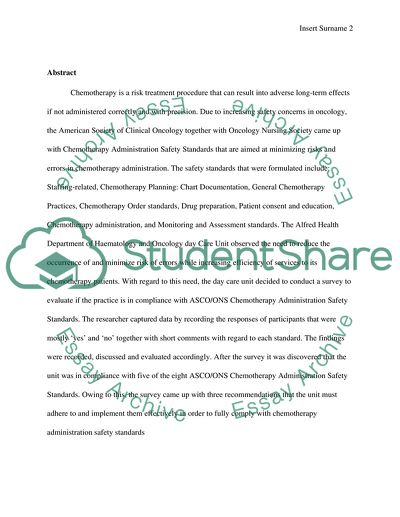Cite this document
(“Evaluating compliance of chemotherapy administration safety standards Research Paper”, n.d.)
Evaluating compliance of chemotherapy administration safety standards Research Paper. Retrieved from https://studentshare.org/health-sciences-medicine/1601632-evaluating-compliance-of-chemotherapy-administration-safety-standards-of-practice-in-anoncology-day-centre
Evaluating compliance of chemotherapy administration safety standards Research Paper. Retrieved from https://studentshare.org/health-sciences-medicine/1601632-evaluating-compliance-of-chemotherapy-administration-safety-standards-of-practice-in-anoncology-day-centre
(Evaluating Compliance of Chemotherapy Administration Safety Standards Research Paper)
Evaluating Compliance of Chemotherapy Administration Safety Standards Research Paper. https://studentshare.org/health-sciences-medicine/1601632-evaluating-compliance-of-chemotherapy-administration-safety-standards-of-practice-in-anoncology-day-centre.
Evaluating Compliance of Chemotherapy Administration Safety Standards Research Paper. https://studentshare.org/health-sciences-medicine/1601632-evaluating-compliance-of-chemotherapy-administration-safety-standards-of-practice-in-anoncology-day-centre.
“Evaluating Compliance of Chemotherapy Administration Safety Standards Research Paper”, n.d. https://studentshare.org/health-sciences-medicine/1601632-evaluating-compliance-of-chemotherapy-administration-safety-standards-of-practice-in-anoncology-day-centre.


